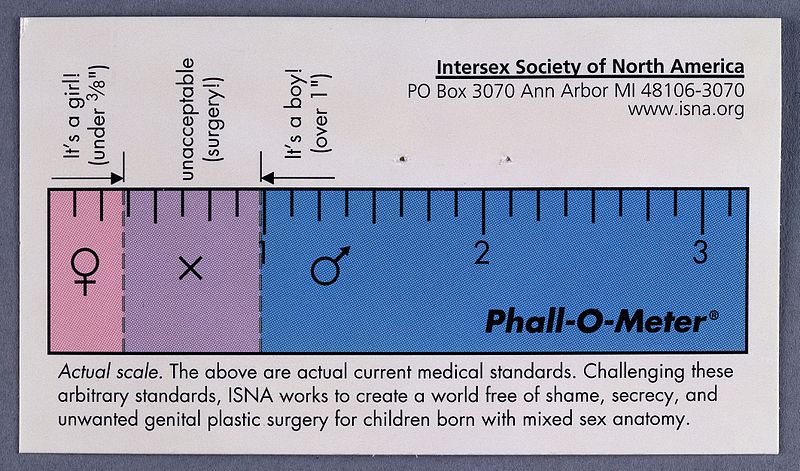Looking back in history, forced and coerced sterilization has been used as a means to implement policies aimed at population growth control, or even with the purpose of attaining a “superior” genetic race.
In the U.S., between 1973 and 1976, the Government admitted to having ordered the forced sterilization of 3,406 Native American women, and between 2006 and 2010, 148 female inmates were forcibly sterilized in California prisons. Moreover, HIV positive women, have been reported to be forced or coerced to endure sterilization procedures in various countries, including but not limited to El Salvador, Honduras, Nicaragua, Kenya and Namibia. And in 2014, eleven Indian women died after a state-sponsored mass sterilization program that targeted poor women, and that pay them 1,400 rupees (around 20 USD) to undergo the procedure. Recently, Australia was also the subject of media attention due to its policy which, in the presence of a court order, allows the forced sterilization of intellectually disabled women.
Additionally, transgender and intersex individuals have also often been the target of abusive and groundless legislations that mandate the performance of medically unnecessary surgical procedures, which in many cases result in forced or coerced sterilization of intersex infants and children, and transgender persons.
In Europe, more than thirty countries, e.g. France and Finland, require abusive practices, including sterilization (others are e.g. divorce and statement of mental illness) in order to allow transgender people to change their name or gender.
By definition, forced and coerced sterilization have different meanings. Forced sterilization means sterilization of people without their consent or the opportunity to provide consent. Coerced sterilization is understood as the “use of financial or other incentives, misinformation or lack of information about the procedure and its consequences, or fear of bodily harm or denial of medical services deployed to influence an individual to undertake the procedure or permit the procedure to occur.”
Despite the different definitions, both bear similar psychological and physical consequences for those who experience it, including transgender and intersex people.
According to data from Transgender Europe (TGEU), more than thirty countries in Europe, e.g. France and Finland, require abusive practices, including sterilization (others are e.g. divorce and statement of mental illness) in order to allow transgender people to change their name or gender. There are around 1.5 million transgender individuals in Europe, which implies that 1.5 million people, in Europe alone, face the risk of experiencing forced or coerced sterilization in order to be themselves and have the identity they inherently have the right to. This, in a place which, interestingly, has its own Convention on Human Rights, and thus, should protect the individual rights of its citizens. The video below, created by TGEU, portrays this reality:
Although with more ambiguous legislations, other places around the world impose challenging processes that often result in the forced or coerced sterilization of transgender individuals. For instance, in the United States, it is not explicitly required that transgender people undergo sterilization to change their gender in their driver’s license or birth certificates, however, some states do demand some forms of “sex reassignment surgery” for that purpose, which in some cases compromises the ability of reproduction.
Several justifications are given for the imposition of sterilization of transgender people in order for them to be allowed to legally change their name or gender. The Open Society Foundations, in its report License to Be Yourself, highlighted that among the most common arguments for these practices are: “a person’s genitals and reproductive organs must match their gender identity”, “sterilization proves that a trans person is serious about their gender identity,” “only women should be able to become pregnant and give birth,” or even “a trans parent exposes their child to discrimination.” However, as the same report reminds, gender identity is not determined by sexual or reproductive organs, the willingness to legally change one’s gender is by itself a serious decision, the capability to conceive a child is not a matter of gender identity but one of anatomy, and lastly, it is the role of governments and civil society to promote non-discrimination practices.
Related articles: WOMEN MAKING THEIR OWN FERTILITY DECISIONS
EXPLORING THE MEANING OF GENDER
On the other hand, interserx people are often subjected to “cosmetic and other non-medically necessary surgeries” which may result in the sterilization of the intersex person. These surgical interventions are commonly performed solely because intersex infants are born with sex variations that do not fit in the traditional male or female boxes, and often, without the informed consent of the children or their parents.
These are ordinarily based on stigma and negative perceptions towards genital variances, which are commonly described by physicians as: “…disfiguring and embarrassing phallic structure…”, “….babies born with an ungainly masculine enlargement of the clitoris evoke grave concern in their parents,” “… the size of the glans is challenging to a feminine cosmetic result”, or even “who cannot be a boy with this insignificant organ… They must be raised as females… They are doomed to life as a male without a penis”.
These disturbing beliefs are what lead to the “sex-normalizing surgery” term, as if this practise was intended to “fix” the “abnormal” child’s genitalia. Ironically, the practice that is supposed to alleviate the “weirdness” on the infants and children leads to isolation, stigma and feelings of shame in interesex persons. As one intersex adult reported: “The primary challenge [of being born intersex] is [in] childhood; parents and doctors thinking they should fix you. That can be devastating not just from a perspective of having involuntary surgery, but it’s even more devastating to people’s ability to develop a sense of self. […] So I think for most people the biggest challenge is not the genital mutilation, but the psychic mutilation.”
 In the photo: The “phall-o-meter” – a ruler that portrays the acceptable ranges of phallus size for male and female at birth, and used to determine the need for “sex-normalizing” surgery in intersex infants. Source: Wikimedia
In the photo: The “phall-o-meter” – a ruler that portrays the acceptable ranges of phallus size for male and female at birth, and used to determine the need for “sex-normalizing” surgery in intersex infants. Source: Wikimedia
Additionally, as Méndez, the UN Special Rapporteur on torture, described, in 2013, “Medical treatments of an intrusive and irreversible nature, when lacking a therapeutic purpose, may constitute torture or ill-treatment when enforced or administered without the free and informed consent of the person concerned.”
Also, the World Health Organization together with six more UN agencies in a 2014 report calling for Eliminating forced, coercive and otherwise involuntary sterilization, stated that surgical requirements to transgender individuals and “sex-normalizing” procedures in intersex infants and children “run counter to respect for bodily integrity, self-determination, and human dignity, and can cause and perpetuate discrimination against transgender and intersex persons.”
Moreover, what the requirement of sterilization of transgender for legal gender recognition and the medically unnecessary surgeries practiced in intersex reflect is the rigorous dichotomy in the understanding of gender, which stringently ties it to a person’s genitals, rather than a comprehensive and realistic approach that embraces diversity. Furthermore, this view of gender, consequently, contributes to the stand point that reproduction should be an exclusive privilege of those who fit in the illusory binary, and that “normalizing” surgeries are imperative for interesex individuals’ wellbeing and social integration.
Notwithstanding, despite discriminatory laws that challenge intersex and transgender individuals’ reproductive rights and that foster prejudice, “non-traditional” families are not less happy than “traditional” ones. For instance, a recent study shows that transgender parents have healthy and positive relationships with their children, in spite of the external challenges they face. For a clearer example, the video below tells the story of two transgender parents, who against the social norms, had two biological children, and built a happy family.
Fortunately, some countries are already taking measures to end the nightmare imposed to transgender and intersex persons. As an example, in 2012, groundbreakingly, Argentina passed the Gender Identity and Health Comprehensive Care for Transgender People Act, which included the ban on the need to provide evidence of having undergone sex reassignment surgery, psychological or medical treatment, or hormone therapy for gender recognition. In 2014, Denmark eliminated the mandatory sterilization in order for transgenders to be able to legally change their gender. Similarly, in 2015, Malta became the first country to ban the unnecessary surgical intervention on intersex infants, which according to Paulo Côrte-Real, the co-chair of the European branch of the International Lesbian and Gay Association , “ [saying] that this Act is a groundbreaking human rights milestone is almost an understatement.” In that same year, the Parliamentary Assembly of the Council of Europe (PACE) adopted a resolution aimed at eliminating discrimination against transgender people, which referred to the abolishment of the mandatory sterilization for gender identity recognition.
Lastly, gender nonconforming people and atypical sex bodies should not be regarded as “exceptions” to the norm, nor “different” from the “normal” people and anatomies. Diversity is the very essence of nature and should be cherished rather than alienated.
And, as Greenberg, a law Professor at Thomas Jefferson and expert in legal and gender-related issues, noted in her paper in 1999: “No principle of justice will be undermined if courts adopt a more flexible approach that includes intersexuality as a sex classification and allowed transgendered people to self-identify their gender. ”



 In the photo: The “phall-o-meter” – a ruler that portrays the acceptable ranges of phallus size for male and female at birth, and used to determine the need for “sex-normalizing” surgery in intersex infants. Source:
In the photo: The “phall-o-meter” – a ruler that portrays the acceptable ranges of phallus size for male and female at birth, and used to determine the need for “sex-normalizing” surgery in intersex infants. Source: 






